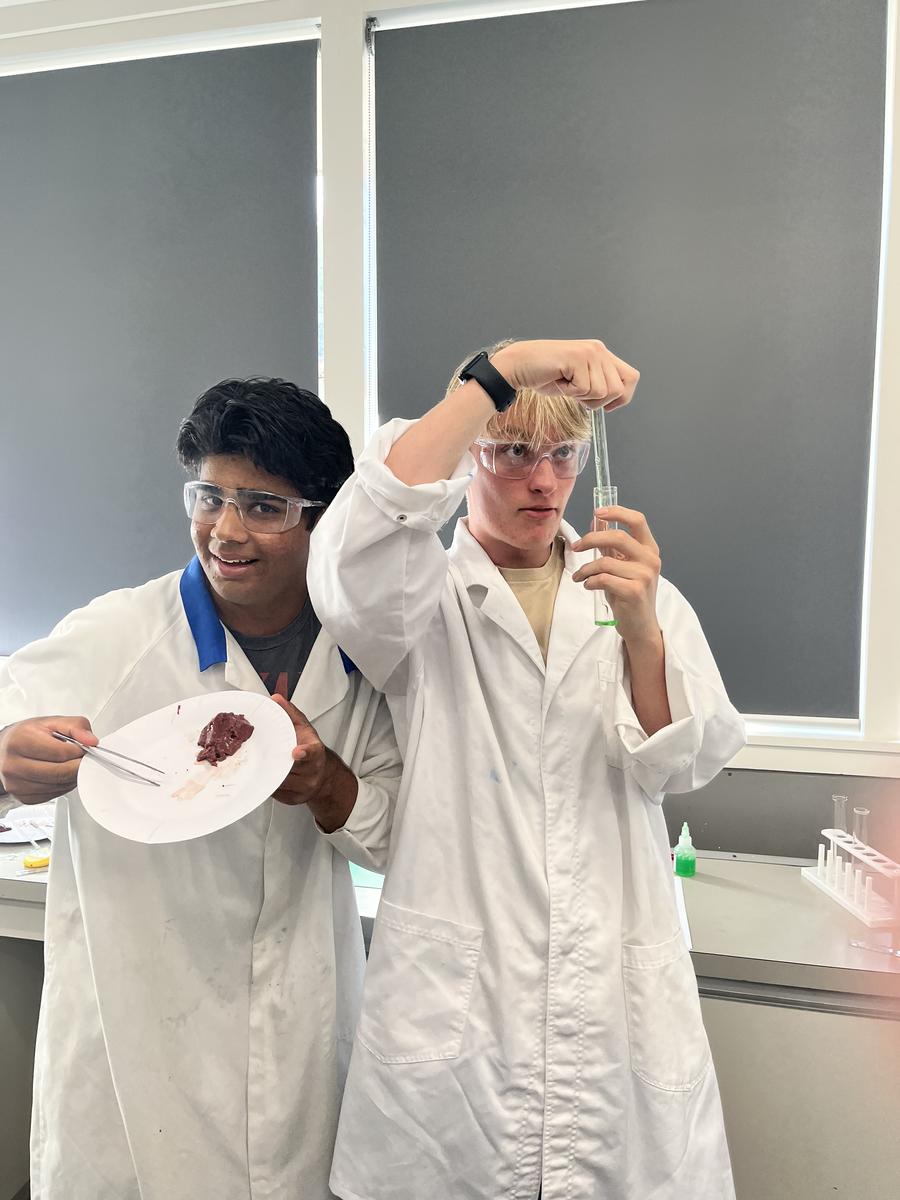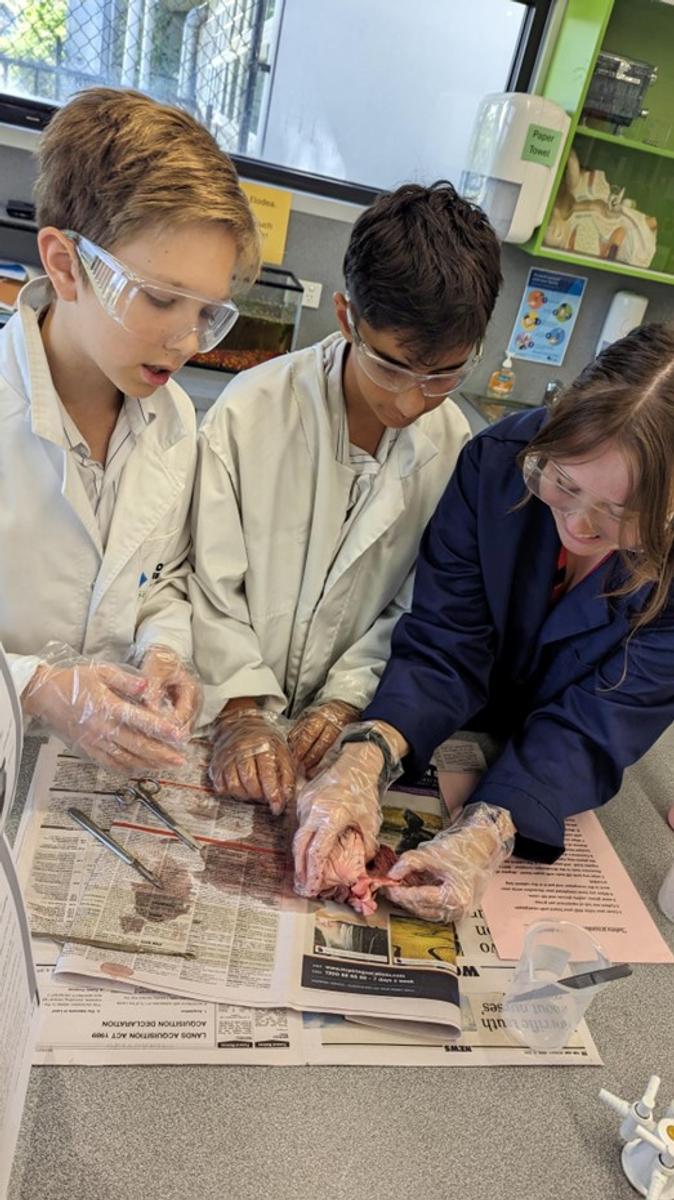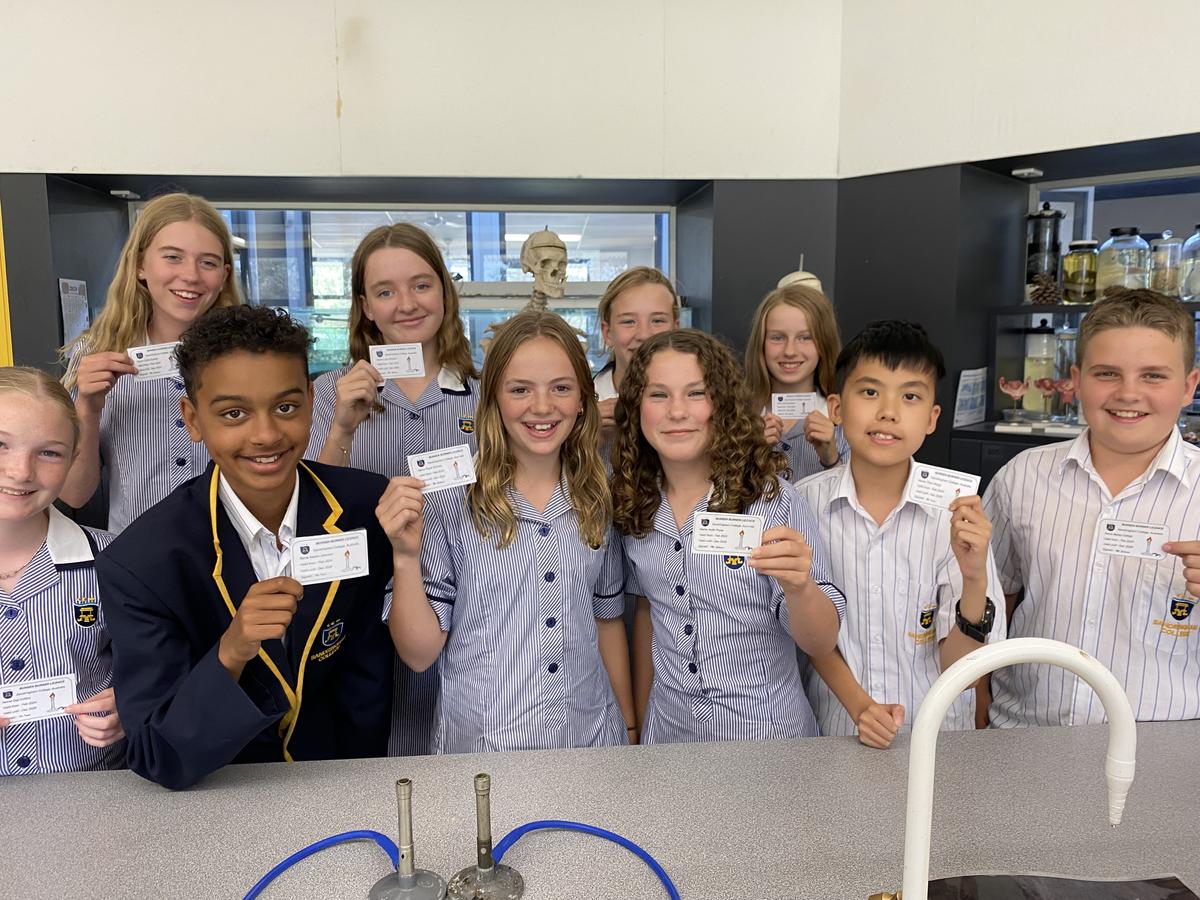Science Domain
Dr Roxanne Toivanen - Domain Leader

Science Domain
Dr Roxanne Toivanen - Domain Leader
Each year in science, students will sample topics from four scientific disciplines: Biology, Chemistry, Physics and Earth Science. In this year’s newsletter, I aim to highlight student work in these various disciplines. This term, the spotlight falls on Biology, the study of living things.
As a former medical research scientist, I hold a particular fondness for biology. It appeals to the animal and nature lovers, as well as aspiring doctors and researchers seeking cures for diseases. Biology relies less on formulas and calculations, instead emphasising the creation of diagrams to summarise complex ideas. Our go-to tools include microscopes for detailed observation and scalpels for dissections. Students at Sandy will gain exposure to all these aspects of biology throughout their science education.
At Bluff Road, our Year 8 and 9 students have been learning about body systems. Over the span of two years, they will explore several fundamental processes that occur in the human body, including digestion, circulation, nerve signalling, brain function, and immune response to infections. This term, students had the opportunity to dissect a heart (Year 8) and brain (Year 9), a highlight enjoyed by many. Holding and dissecting real organs provides an unparalleled understanding of their structure and function, deepening their knowledge of how our bodies sustain life.










For our Year 7 cohort, their introduction to the world of biology will have to wait until Term 3. Currently, their focus is on familiarising themselves with the laboratory environment, learning about scientific equipment, and gaining hands-on experience in experimentation through an introductory unit in chemistry. A milestone for them has been obtaining their Bunsen burner license, and congratulations are in order for all who passed the test.
At the Holloway campus, many students have been studying the microscopic world that is cellular and molecular biology. Year 10 students constructed models of DNA and learnt about the theories of evolution. In VCE Unit 1 Biology, students focused on the different components of cells, the fundamental building blocks of all living things. Meanwhile, students enrolled in the marine and environmental science elective studied ocean properties, movement, and weather patterns, laying the groundwork for a deeper exploration of marine life in the upcoming term.
Unit 3 VCE Biology students are exploring enzymes, which speed up reactions in the body. They have paid specific attention to CRISPR-CAS 9, an enzyme that bacteria use to combat invading viruses. CRISPR-CAS 9 has inspired scientists to develop new experimental techniques which has revolutionised how we make genetically modified organisms (GMOs). Studying such scientific advancements not only enhances student understanding of life processes but also highlights how society utilises this knowledge to drive changes in our world.